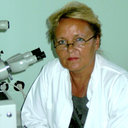Modulatory effects of feeding pregnant and lactating mice Rhodiola kirilowii extracts on the immune system of offspring.
Lykilorð
Útdráttur
Plants of Rhodiola genus are medicinal herbs that have a number of therapeutic properties, including anti-inflammatory and immunomodulatory activity. The present study aimed to determine whether the use Rhodiola kirilowii as an immunostimulant during pregnancy has an adverse effect on the development of the offspring immune system. Following mating, pregnant mice were placed in three groups that were fed during pregnancy and lactation with R. kirilowii aqueous extract (RKW; 20 mg/kg), R. kirilowii 50% hydro-alcoholic extract (RKW-A; 20 mg/kg) or water (control group), receiving water. Following birth, offspring were given six weeks to develop prior to evaluation of their immune system. Morphometric and morphological examination of the spleen did not reveal any abnormalities or differences between the experimental and control groups. However, both RKW and RKW-A splenic lymphocytes presented a diminished proliferative response to concanavalin A. RKW spleen lymphocytes demonstrated increased metabolic activity following phytohaemagglutinin (PHA) stimulation, which was associated with a higher percentage of cluster of differentiation 4 positive spleen cells and lower interleukin-17a (IL-17a) serum concentration. The RKW-A group exhibited a diminished proliferative response of spleen lymphocytes to PHA and lipopolysaccharide (LPS), and increased serum concentrations of IL-10 and tumor necrosis factor-α (TNF-α). The progeny of mice fed with RKW-A extract demonstrated a significantly lower level of anti-SRBC antibody following immunization compared with progeny of the control (P=0.0305) and RKW (P=0.0331) groups. In conclusion, caution is recommended in the use of RKW and RKW-A extracts as immunostimulants in pregnancy.




